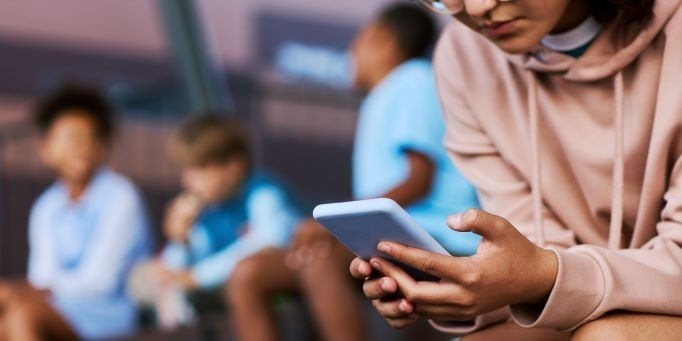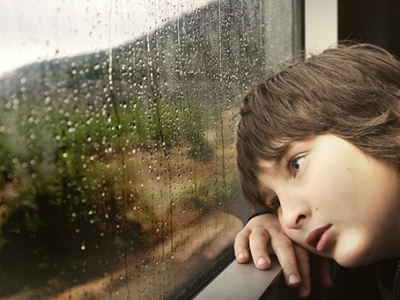
Schools are banning phones: parents need to know why
It's time to get informed and take responsibility.
Last week, the new Premier of NSW, Chris Minns, announced plans to make good on his election promise and ban use of smartphones by students in NSW public high schools from term 4 this year.
What a relief! For too many years, our children have been free to text, watch and scroll, scroll, scroll in the school playground and often even in the classroom. Teachers have been desperately telling us what we know from our own experiences to be true: smartphones are a distraction against which even the most engaging teacher or fun peer group cannot win.
As a parent who struggles to manage my children’s smartphone use, I’m so thankful for this new ban. It’s so difficult to walk the line between online safety, convenience, healthy habits and ‘all my friends have a phone’, let alone keep abreast of the latest apps and crazes.
I know that there are many compelling reasons to give our kids phones, and that saying no to smartphones or social media—standing against the tide of our culture—is extremely difficult, both for us and our children. I also know how difficult it is to rein phone use back in once it’s established, and I’ve seen first-hand how much of a child’s time and attention can be stolen by smartphone use, and particularly by social media.
And so, I urge you, fellow Christian parents: support your child’s school in implementing the phone ban, consider carefully before giving your child a smartphone or access to social media, and have the courage to be counter cultural as you manage smartphones in your family.
The risks
Some would argue that it’s important to allow access to smartphones in schools so that children can learn to manage their use. But it’s clear that ‘throwing children in at the deep end’ by allowing them free access to devices, and in particular social media, has led not to swimming, but to drowning.
It’s unrealistic to expect children to show self-control in the face of the insidious marketing and psychological tricks employed by social media platforms that make them addictive. I’m yet to meet an adult who has mastered it. In the same way that we tightly control the use of alcohol by young people, it is right the government controls smartphone use in schools. Like addictive substances and gambling, smartphone use diminishes the user’s capacity for self-control, and has the potential to cause long-term harm.
Children using smartphones at school (or indeed anywhere) are at risk of harm from accessing dangerous content (pornography, violence and suicide ideation among other things), online bullying and grooming by predators. They are also exposed to ungodly values—regarding physical beauty above character, the worship of money, the abuse of power, the humiliation of others and so on. Social media use has also been linked to anxiety and depression among teenagers.
The lost opportunities
In addition to the risks, there is also an enormous opportunity cost of smartphone use—that is, the loss of all the things they could otherwise be doing.
Children who are using smartphones at school are missing out on opportunities to socialise face-to-face and practise social skills like conversation, eye contact and conflict resolution. We are designed by God to be in relationships with others, but smartphone use makes it harder for our children to form and maintain deep and compassionate connections with peers. Smartphones also tend to make children less physically active, prone to distraction in class and less able to focus on learning. There’s such a lot at stake.
How will they learn to stay afloat?
The NSW Government’s ban on smartphones in classrooms is great news for parents, but we must ensure that we don’t become complacent in taking responsibility for our own children’s smartphone and internet use.
Children learn to swim through the careful training, correction and modelling of oh-so-patient swimming instructors. Likewise, our children will learn to stay afloat in the world of social media and smartphones through careful training, correction and modelling from us, their parents. If we are not responsible, disciplined and wise users of smartphones ourselves, then the danger to our children lies as much with us as it does in the school playground. Proverbs 22:6 gives us the principle for careful, godly parenting: ‘Train up a child in the way he should go; even when he is old he will not depart from it’. With God’s help, we can powerfully influence our children’s lives for their good—and we must strive to do so!
In Matthew 6:22–23 we read ‘The eye is the lamp of the body. If your eyes are healthy, your whole body will be full of light. But if your eyes are unhealthy, your whole body will be full of darkness’. Our minds are shaped by what we watch and listen to. As parents we must consider the ways we use smartphones, and we must also take seriously our responsibility to ensure our children are protected from harmful content and are free to engage in activities that help them to thrive.
If you’re struggling to manage your own phone use, you’re not alone! The internet and in particular social media, are designed to hijack self-control and your attention—it’s not an accident and it’s not simply a sign of failure or weakness on your part. As writer Johann Hari puts it, we haven’t lost our focus—it’s been stolen from us.
With so much potential for harm, it can feel overwhelming to be parenting in this digital age. Have courage! There is much we can do, and our God is infinitely more powerful than smartphones.
Where to from here?
1. Pray for the Government as they work though the logistics of the ban. If your child attends a non-government school, advocate for the same ban to applied there too.
Pray for school principals and teachers as they manage the changes, and for students as they adjust to the new rules. Pray that the ban will keep children safer and will enable better learning, better relationships, and better mental and physical health for our children.
2. Take responsibility for your own phone use as well as that of your children. Use filters, internet management software (such as Bark or Family Safety Zone), engage the screentime limits on phones, use phone lock boxes and enforce family rules. Talk to your friends, read books and seek advice and accountability. Join a support group like Heads up Alliance.
3. Set (and enforce!) rules and boundaries around phone use. In our home, my older children were given a smartphone once they hit high school, but we didn’t allow them to have social media until they were 16. We promised them an agreed-upon lump sum on their 16th birthday, as a ‘payment’ for not having social media—this helped them manage the social pressures enormously.
We also have a (successfully enforced) rule that no phones are brought to the meal table, and a (less successfully enforced) rule that phones are not allowed in bedrooms (this meant buying extra speakers, so that teens can still play music in their rooms). In year 7, we set up their phones to block most apps and websites and have engaged screen time limits. These rules are all relaxed gradually over time.
Explain to your children why you’re making these rules. In age-appropriate ways, educate them about online harms—this will mean having hard conversations about things like pornography, bullying and violence.
Smartphone and internet use is a constantly evolving, unending battle. None of our plans to manage phone use are foolproof; many of mine have failed or have needed adjustment. It’s so, so difficult. But we must persist.
4. Consider whether children really need a smartphone, particularly those in primary school. Could they use a ‘dumb phone’? Do they need a phone at all? The risk to a child who misses the bus or has to wait longer than expected to be picked up is minimal, but the risks of smartphone use to children’s wellbeing are high.
In these challenging times, let’s ask God for the insight and humility to see our own weaknesses, and for courage and self-control as we establish better habits. Let’s seek his wisdom as we guide our children and model thoughtful, loving and disciplined smartphone use.
Further reading:
Johann Hari, Stolen Focus (Crown, 2022)
https://www.abc.net.au/news/2023-04-03/nsw-school-mobile-phone-ban-term-4/102178468
https://theconversation.com/banning-mobile-phones-in-schools-can-improve-students-academic-performance-this-is-how-we-know-153792
https://www.facebook.com/TheHeadsUpAlliance/
---
Kat Israel is mum to one young adult and four school-aged kids, and a preschool educator. She is married to Toby and they live in suburban Sydney.

A New Freedom
This book is like a training manual on how to approach life—a beginner’s guide to Christian ethics. It provides a framework for approaching any topic in a comprehensive and biblically faithful way, explaining why Jesus and his word help us live in freedom. It then gives practical examples of how to use this framework to think biblically by going through six key youth topics: study, money, suffering, violence, sex and identity.
For more articles from Growing Faith, subscribe to our monthly e-newsletter.
To hear about the latest books and resources from Youthworks Media, subscribe here.








